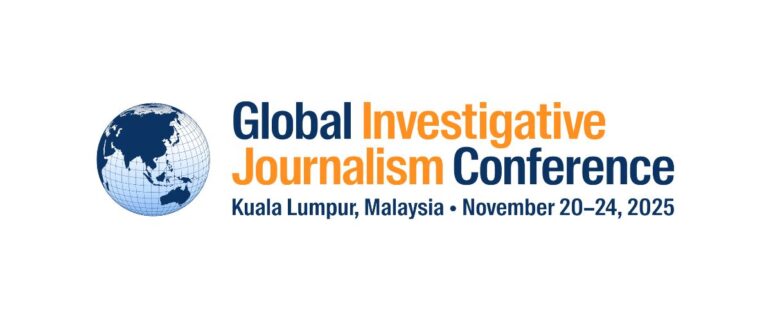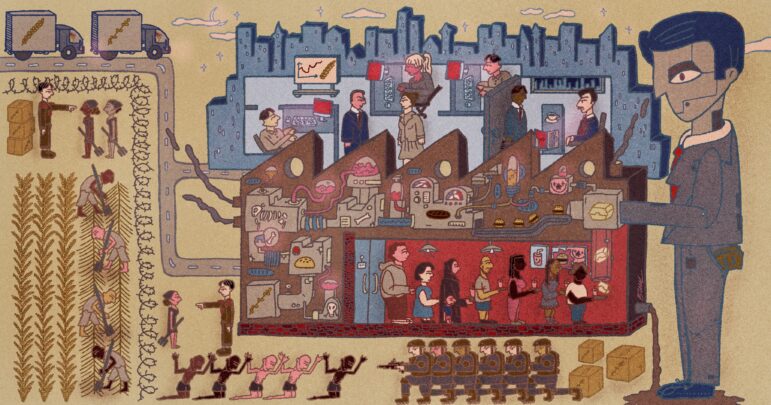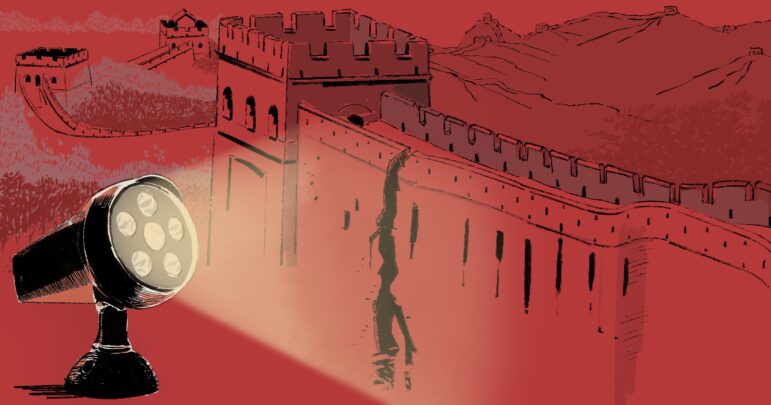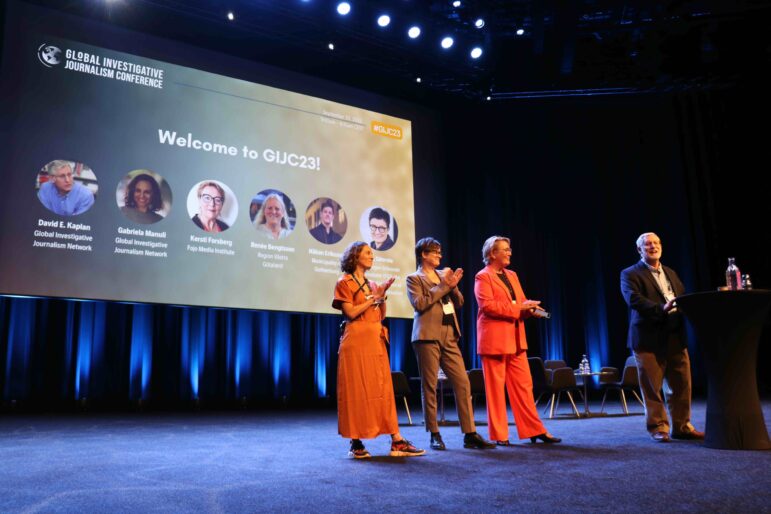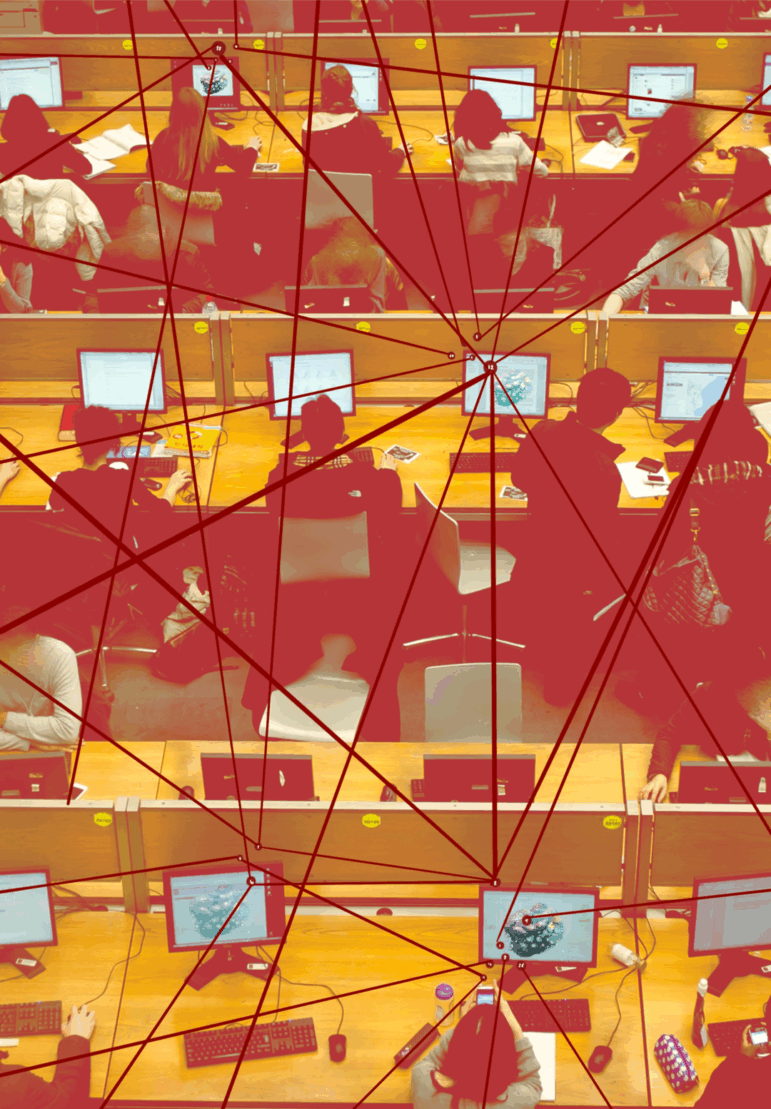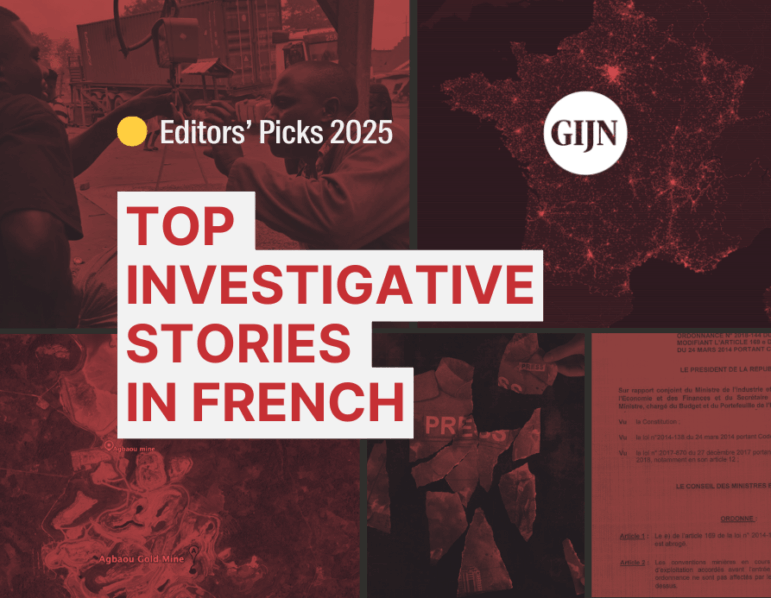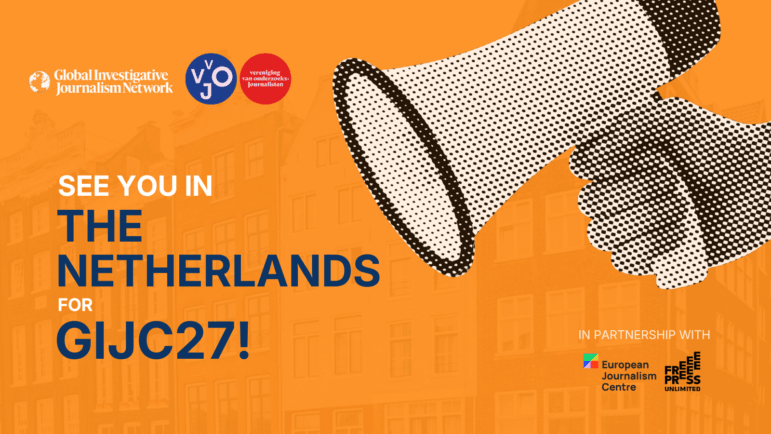

Image: GIJN
In 2027, Global Investigative Journalism Conference Heads to the Netherlands
The 15th Global Investigative Journalism Conference will be held in 2027 in the Netherlands, co-hosted by the Global Investigative Journalism Network (GIJN) and De Vereniging van Onderzoeksjournalisten (VVOJ,) (The Dutch-Flemish Association of Investigative Journalists).
Announced this weekend at the 14th Global Investigative Journalism Conference in Kuala Lumpur, Malaysia, following a rigorous GIJN Board selection process, VVOJ — a regional force for watchdog training and public transparency, and one of the earliest GIJN member organizations — will co-host the premier gathering of investigative journalists for the second time, having organized the 2nd Global Investigative Journalism Conference in Amsterdam in 2005. The Dutch city where the world’s watchdog community will gather for GIJC27 will be announced soon — so watch this space!
VVOJ has a membership of more than 700 investigative reporters in the Netherlands and Flanders (the Dutch-speaking part of Belgium), and promotes high-quality investigative journalism, fosters innovative methodology and storytelling, and hosts its own practical conferences annually. Having been founded in 2002, the nonprofit association will celebrate its 25th anniversary at GIJC27. It is a fitting partner for a global conference that hosted more than 1,500 journalists from over 130 countries and territories at GIJC25 and that set a record for journalism conferences with more than 2,100 attendees the last time it was held in Europe.
“We are incredibly excited to join forces with VVOJ, European Journalism Centre, and Free Press Unlimited, to work on GIJC27,” said Emilia Díaz-Struck, executive director of GIJN. “VVOJ brings a wealth of expertise organizing investigative journalism conferences, and contributing by strengthening the investigative journalism community. We can’t wait to see everyone in 2027 and continue working together towards the future of investigative journalism around the world! Global watchdogs united! See you in the Netherlands!”
“It’s quite an honor to be co-hosts of the global conference — and it gives us the chance to shine more as an organization, and to make investigative journalism more important in the Netherlands and Flanders,” says Rick van Dijk, coordinator of VVOJ. “We have partnered up with the European Journalism Centre and Free Press Unlimited, which will support VVOJ in organizing GIJC27.”
The 2024 winners of VVOJ’s premier journalism award, De Loep, illustrate the kind of courageous investigations that the organization both promotes and helps to develop. In June this year, its prize committee honored an investigation, titled Putin refuels in Zeeland that exposed Russia’s illicit, sanctions-busting use of decommissioned oil tankers. To produce the story two reporters used sanctions lists, satellite imagery, ship ownership registries, and traditional reporting to expose this “shadow fleet.” And one of VVOJ’s coveted Magnifying Glass awards also went to a collaborative project called Class Justice in the Netherlands, where reporters used data analysis to show that migrants are imprisoned at a much higher rate for the same criminal offenses.
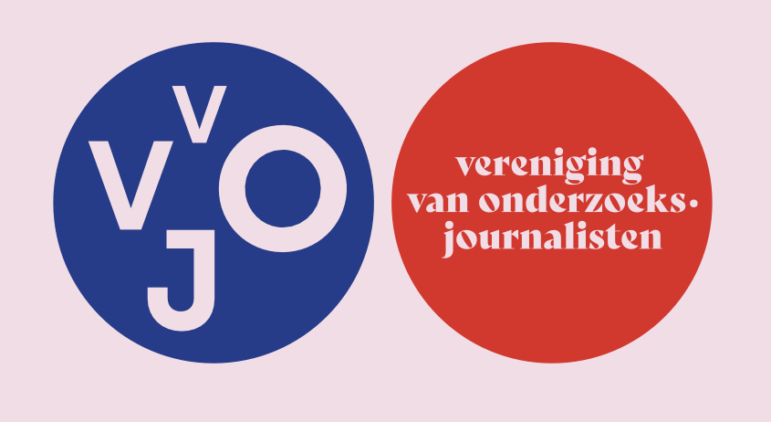
Image: VVOJ
Notably, VVOJ also champions the prioritization of investigative projects within newsrooms, and within the story mix — and its other journalism prize, Flywheel, specifically honors editors who are willing to allow beat reporters to step away from daily stories to tackle investigations.
“Usually, you reward the reporters who do the work, but you cannot do the work if you’re not backed by your editor or publisher,” says Margo Smit, news ombudsperson for the Dutch NPO public broadcasting system, and a former director of VVOJ. (Smit is also a GIJN Board member.) “Those people who go out of their way to make investigations possible rarely get recognition.”
While the Netherlands is a recognized center for international justice and human rights advocacy, with strong press freedom protections, Van Dijk notes that nuisance SLAPPs still burden local newsrooms, and that the country continues to present challenges to reporters seeking access to public data.
To combat this lack of transparency, VVOJ works with a partner, SPOON, to offer information access resources based on the country’s Open Government Act (known by its Dutch acronym “Woo”), including a Woo Generator that helps reporters create easy and correctly formatted FOI requests.
“The information access procedure is relatively clear, but the difficulty is to get the right information from the government; who to talk to; and how to get the information on time,” says Van Dijk. “Most officials drag their feet on divulging data.”
“We are far less open than you might think,” Smit cautions — and she points to a troubling new practice in which some government officials choose to pay fines for nondisclosure rather than release requested information.
From extensive research, Smit believes that the health of investigative journalism in countries with a free press can be measured across three principles: determination, prioritization, and cooperation.
“Cooperation has much improved in the past 15 years; big projects like the Panama Papers and Paradise Papers have shown media outlets that it’s actually to their benefit to take part in cross-border projects and collaborations,” she explains. “But prioritization and determination are still problems. I see this at the big broadcasters: the minute they get budget cuts, what they look at is the people not doing the daily news. ‘Maybe you can do a project less?’ That’s problematic.”
While VVOJ has an active board of 10 members, remarkably, it has just two part-time salaried staff members, and about a dozen dedicated volunteers.
“What makes VVOJ special — and what was already special when we organized the 2005 Global Investigative Journalism Conference — is that it is a heavily volunteer-driven organization,” Smit notes. “We organized GIJC 2005 with only volunteers; this time, we’ll do so with only one or two paid people working for the organization. “It’s incredible that so many people are so devoted to the project; it shows the value.”
As an ombudsperson who hears the perceptions and complaints of viewers and readers every day, Smit – a former veteran investigative reporter — believes the journalism community needs to tackle a global perception problem about the craft itself ahead of GIJC27.
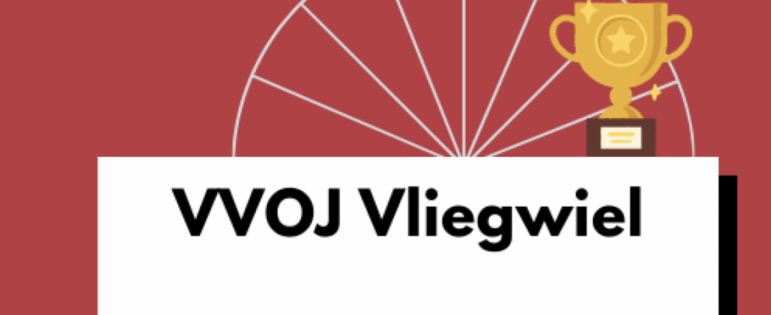
As part of its own set of journalism prizes, VVOJ’s Flywheel Award specifically honors editors who are willing to allow beat reporters to step away from daily stories to tackle investigations. Image: VVOJ
“I’m genuinely worried about how our public can distinguish our work, and its importance, from other channels of information, and from propaganda,” she says. “I see every day from the reader complaints that come in; from the way politicians play the public; from the way influencers mimic our methodologies and even the way we look as journalists, that people are struggling to distinguish. To understand that we are accountable for the facts we present because we have ethical codes, and that we hold ourselves to them. ”
Smit points out that some of the most widely-read “stories” consumed and considered credible by readers are press releases generated by government propagandists. She says relentless transparency is the key message for holding journalism’s ground, and that investigative journalists are the ideal messengers.
“I find that investigative reporters are the most transparent in what they do, because they’re so used to keeping their notes and recording their methods, and they talk about how and why they do their investigations,” Smit notes. “And that’s what organizations like VVOJ and GIJN and these conferences have taught us in the profession. Transparency is one of the great achievements of the international investigative movement.”
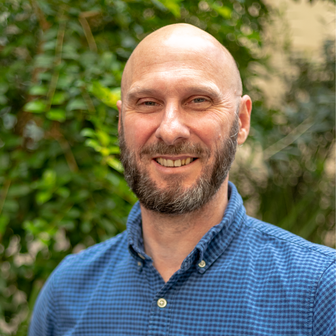 Rowan Philp is GIJN’s global reporter and impact editor. A former chief reporter for South Africa’s Sunday Times, he has reported on news, politics, corruption, and conflict from more than two dozen countries around the world, and has also served as an assignments editor for newsrooms in the UK, US, and Africa.
Rowan Philp is GIJN’s global reporter and impact editor. A former chief reporter for South Africa’s Sunday Times, he has reported on news, politics, corruption, and conflict from more than two dozen countries around the world, and has also served as an assignments editor for newsrooms in the UK, US, and Africa.

